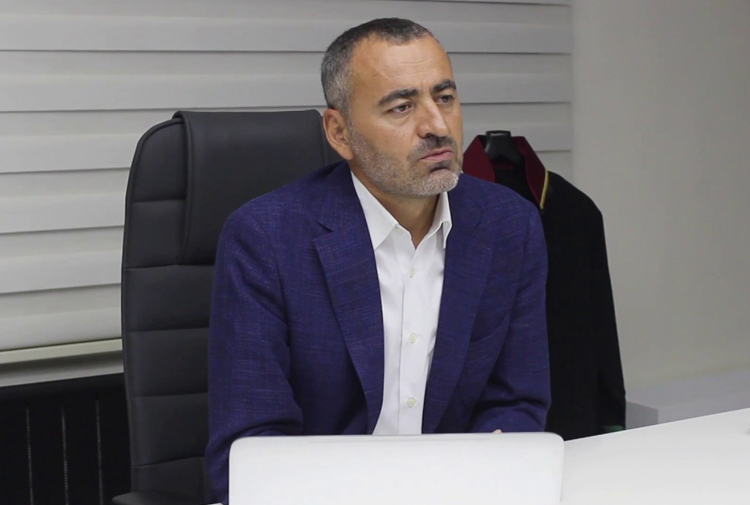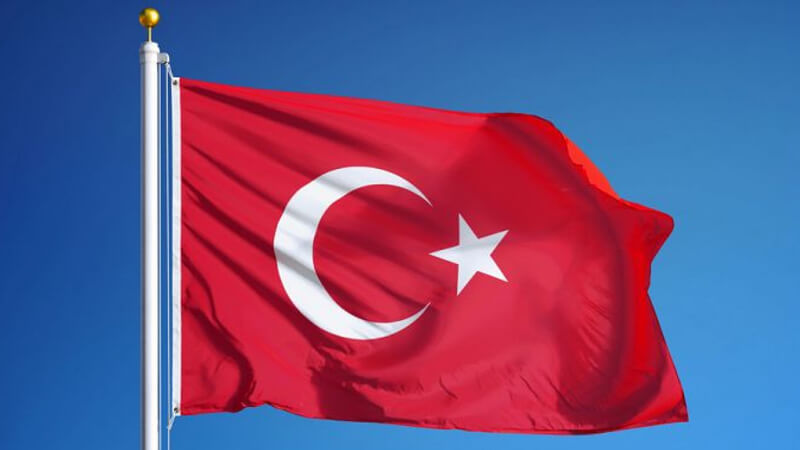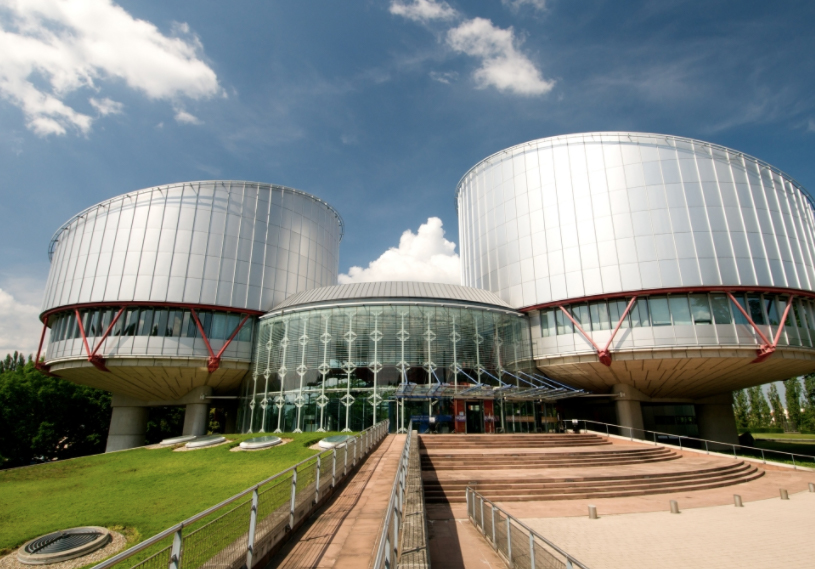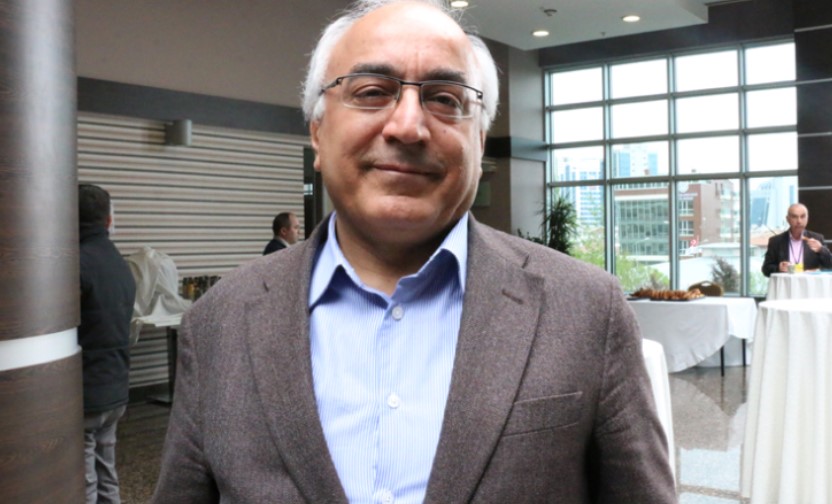
Jun 29, 2021 | Advocacy, Non-legal submissions
The ICJ joined civil society organisations in a statement to the UN Human Rights Council during the interactive dialogue with the UN Special Rapporteur on the independence of judges and lawyers.

Jun 16, 2021 | News
The International Commission of Jurists (ICJ) called today on Turkish authorities to immediately drop charges of ‘propaganda for terrorism’ against Cihan Aydın, a lawyer and former President of the Diyarbakır Bar Association.
Cihan Aydın learned that he was the subject of a criminal investigation on May 26, apparently based on a statement of the Women Rights Centre of the Diyarbakir Bar Association in 2019 calling for an end to Turkish military action in Syria and calling for diplomatic resolution of the conflict.
Aydın, the President of Diyarbakır Bar Association until April 2021, is known for his human rights litigation and advocacy before domestic courts as well as the European Court of Human Rights including in high-profile and sensitive cases.
The charges amount to an unjustified interference with freedom of expression, the ICJ said.
“This criminal investigation is yet another case of the misuse of criminal proceedings to attack lawyers and human rights defenders in Turkey,” said Roisin Pillay, ICJ’s Europe and Central Asia Director. “The charge against Cihan Aydin of propaganda for terrorism, based on a call for peace by an institution within the Bar Association, is clearly arbitrary, in violation of freedom of political expression, and should be dropped. The criminal law should never be applied to suppress a call on the government to pursue a peaceful solution to conflict.”
Turkey has obligations under international human rights law, including under Article 10 of the European Convention on Human Rights (ECHR) and Article 19 of the International Covenant on Civil and Political Rights (ICCPR) to uphold freedom of expression, which can only be restricted to the extent strictly necessary and proportionate to a legitimate aim. Speech on matters of public interest, including political debate or criticism of government policy, must be particularly protected. Moreover, under Article 20 of the ICCPR, states have a duty to protect against war propaganda, and that duty is likely to be undermined if a state seeks to prohibit and punish views that may be critical of war.
Background
On 26 May 2021, Aydin was requested to give his statement about the accusation of “propaganda for terrorism”.
This prosecution follows other investigations against the Diyabakir Bar Association: following a statement about the statement on Armenian Genocide and a statement denouncing the Head of Religious Affairs Directorate for his comments about LGBTI.
The ICJ has extensively documented government persecution of lawyers in Turkey as well as improper restrictions on freedom of expression:

Jun 4, 2021 | News
(Istanbul, June 4, 2021) – The Council of Europe should insist that Turkey comply immediately with judgments from the European Court of Human Rights (ECtHR), or face infringement proceedings, a group of leading nongovernmental organizations working on human rights in Turkey said today.
An upcoming Council of Europe Committee of Ministers meeting on June 7-9, 2021, will review the Turkish government’s failure to implement two leading ECtHR judgments that ordered the immediate release of the human rights defender Osman Kavala and the Kurdish politician Selahattin Demirtaş. Human Rights Watch, the International Commission of Jurists, and the Turkey Human Rights Litigation Support Project urged the committee to use all available measures to require Turkey to rectify its flagrant non-compliance with its obligations, the court judgments, and the committee’s decisions on this matter.
“The Committee of Ministers should be using every means it has to push Turkey to implement the Kavala and Demirtaş judgments,” said Aisling Reidy, senior legal adviser at Human Rights Watch. “That means that the committee should be prepared to trigger infringement proceedings against Turkey if it persists with its defiance of the European Court’s binding judgment in favor of Kavala, and to call for the immediate release of Demirtaş with a commitment to escalate measures if it does not happen.”
The three groups repeated their March 2021 call for the committee to commence infringement proceedings against Turkey for flouting its decisions requesting Kavala’s release and urged the committee to issue a second decision for Demirtaş’s immediate release. The committee should also make clear that if Demirtaş is not released, it will take further action at its September session.
The ECtHR ruled on December 10, 2019, that by holding Kavala in pretrial detention since November 2017 and prosecuting him on the basis of his human rights activities, the Turkish authorities had “pursued an ulterior purpose, namely to silence him as a human rights defender.”
Similarly, the ECtHR ruled on December 22, 2020, that by holding Demirtaş in pretrial detention since November 2016 and prosecuting him for his activities and speeches protected under the European Convention on Human Rights (ECHR), the Turkish authorities had pursued an ulterior purpose of preventing him from carrying out his political activities, depriving voters of their elected representative, and “stifling pluralism and limiting freedom of political debate: the very core of the concept of a democratic society.”
In both cases, the Court found that by using detention for political ends, Turkey had violated the right to liberty and other rights, and had misused the discretion given to governments to impose limitations on rights for illegitimate purposes (articles 5 and 18 of the ECHR respectively). The Court took the rare step of ordering their immediate release.
Despite the fact that the landmark judgments are legally binding, the Turkish authorities have snubbed the Strasbourg court and ignored the Committee of Ministers’ decisions calling for the men’s release.
“Turkish prosecutors and judges have sought to circumvent the authority of the European Court by adopting the tactic of opening new criminal proceedings against Kavala and Demirtaş based on the reclassification of the same facts,” said Helen Duffy of the Turkey Human Rights Litigation Support Project “This cynical non-compliance with the court’s judgments requires a robust response from the Committee of Ministers.”
On May 21 when the retrial of Kavala for his alleged role in the 2013 Gezi Park protests opened, Turkish authorities merged that case with another concerning his alleged involvement in the 2016 coup attempt and espionage. The Istanbul 30th Assize Court hearing the case extended his detention. The next hearing against Kavala is scheduled for August 6.
In Demirtaş’s case, Ankara 22nd Assize Court on April 19 merged an existing case against him with a new case before it despite the fact that it involved the same or similar facts, which the European Court had held consisted of peaceful political speeches and activities protected under the ECHR. In the new case, the facts used as the evidence have been reclassified under different charges.
The indictment now charges Demirtaş and 107 co-defendants with crimes that include attempting to undermine the unity and territorial integrity of the state, murder, and robbery, all on the basis of tweets and political speeches they made in the period before deadly protests that took place in southeast Turkey from October 6-8, 2014. Demirtaş’s co-defendants include current and former members of parliament from the Peoples’ Democratic Party (HDP). The first hearing of the merged cases against Demirtaş took place on April 26. The next hearing is scheduled for June 14.
Read the full press release here: Turkey Flouts European Court Judgments_press release_2021_ENG

May 12, 2021 | Advocacy, News
The International Commission of Jurists (ICJ), the Turkey Litigation Support Project (TLSP) and Human Rights Watch (HRW) have intervened before the European Court of Human Rights in a case concerning the arrest and pre-trial detention of Turkish opposition politician Selahattin Demirtaş, on a series of charges relating to the exercise of his freedom of political expression. The applicant alleges that his pre-trial detention was arbitrary and unlawful.
In the intervention, the organisations underline that restrictions on freedom of expression, widespread detention and criminal prosecution under expansive anti-terrorism laws, and the impact on democratic debate and rights protection are now well documented in Turkey. This is particularly striking, and the repercussions serious, when opposition politicians are targeted for their expressions of opinion and engagement in democratic debate.
The interveners address:
- the nature and application of anti-terror criminal laws in Turkey and the implications for protection of the right to liberty (Article 5(1) of the European Convention on Human Rights (ECHR)) and freedom of expression (Article 10 ECHR) and for the limitation on use of restrictions on rights (Article 18 ECHR); and
- the effectiveness of the individual application procedure to the Turkish Constitutional Court as a remedy in detention cases, in particular in cases concerning the exercise of freedom of expression, in light of delays, the erosion of the independence and impartiality of the judiciary, and non-compliance of lower courts with the Constitutional Court’s decisions that protect Convention rights.
Full text of the intervention can be downloaded here.

Mar 19, 2021 | News
The ICJ called today on the Turkish authorities to immediately release human rights defender and lawyer Öztürk Türkdoğan, who was arrested this morning after an unlawful search of his home. The charges against him, if any, are unkown and he is currently being held without access to his lawyer.
Öztürk Türkdoğan is the chair of the Human Rights Association and a lawyer and member of the Ankara Bar Association.
“The arrest and search of Öztürk Türkdoğan’s continues a systematic pattern of misuse of the criminal law to harass and persecute human rights defenders and lawyers in Turkey in recent years,” said Roisin Pillay, ICJ’s Europe and Central Asia Programme Director. “Öztürk Türkdoğan must be released immediately. If he remains in detention then he must be ensured immediate and confidential access to a lawyer, and be informed of the nature of any charges against him and brought promptly before a court.”
The arrest occurred during a search of Öztürk Türkdoğan’s home without the presence of a lawyer, which is in direct contravention of Turkish criminal procedural law.
While no information has been made available on the charges against Öztürk Türkdoğan, he is currently being detained without access to a lawyer for 24 hours, which indicates that the charges are likely related to terrorism or to offences against the State. These offences, contrary to obligations under international human rights law, are vaguely and broadly defined and have been long used and abused by prosecutors in Turkey to suppress human rights defenders, lawyers and political opponents.
Under international human rights law, anyone arrested has a right to prompt and confidential access to a lawyer, and to information on the charges against them. Arrests and searches of homes must not be arbitrary and must be carried out in compliance with international standards and national laws and procedures.
“Hundreds of lawyers, judges and prosecutors have been improperly arrested, harassed and detained in the past few years by Turkish authorities ” said Roisin Pillay. “Using the criminal justice system in this way is contrary to the most fundamental principles of the rule of law.”
Background
Systematic violations of human rights in investigation and prosecution of counter-terrorism offences in Turkey have also been documented by the UN Special Rapporteur on the promotion and protection of human rights while countering terrorism, the UN Special Rapporteur on the situation of human rights defenders, the UN Special Rapporteur on the independence of judges and lawyers, theWorking Group on Arbitrary Detention, the Special Rapporteur on the rights to freedom of peaceful assembly and of association and the Special Rapporteur on the promotion and protection of the right to freedom of opinion and expression, and the Commissioner for Human Rights of the Council of Europe.
The ICJ has extensively documented these violations:









